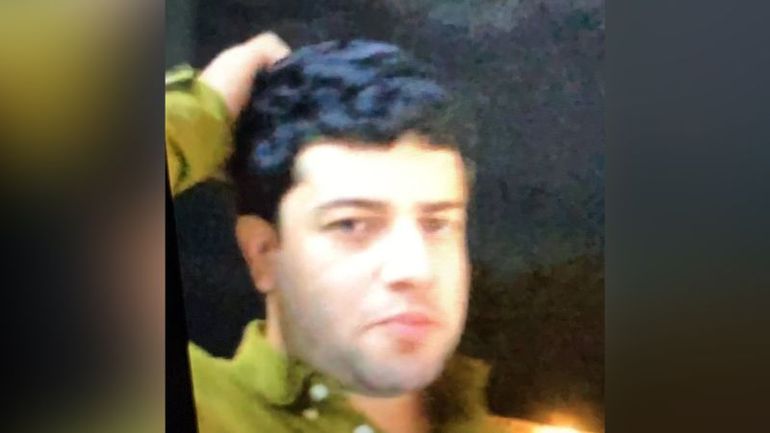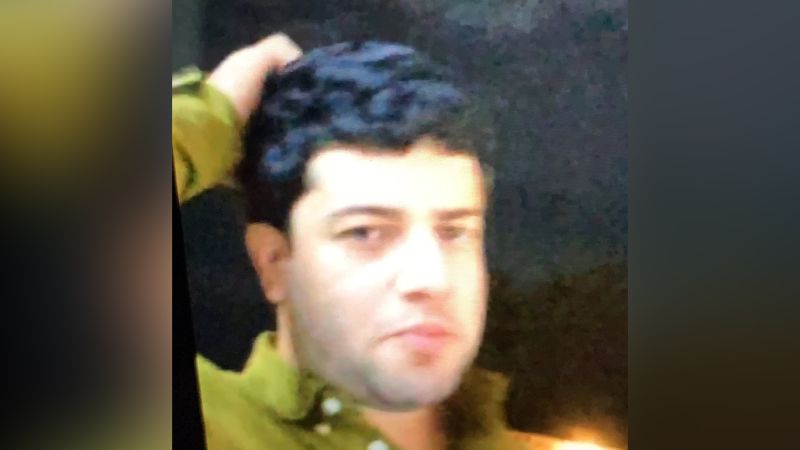
Notorious Mexican Cartel Assassin El Nini Extradited to the United States

Discover the shocking extradition of Néstor Isidro Pérez Salas, a notorious Sinaloa cartel assassin known for his involvement in heinous crimes including murder, torture, and kidnapping of rivals and witnesses. Dive into the details provided by the Department of Justice on this high-profile criminal's capture and extradition to the US.
A top Mexican cartel member known as ‘El Nini,’ was extradited to the United States on Saturday. Nestor Isidro Perez Salas, also known as 'El Nini,' was wanted for his alleged involvement in the fentanyl trade and was considered one of America's most-wanted criminals.
According to a statement from US Attorney General Merrick Garland's office, Nestor Isidro Perez Salas was a key member of the Sinaloa cartel and served as one of their lead sicarios, or assassins. He was responsible for carrying out acts of violence such as murder, torture, and kidnapping against rivals and witnesses who posed a threat to the cartel's illegal drug trafficking operations.
The Department of Justice claims that Pérez Salas was part of the illegal activity of making and selling fentanyl in the United States.
In February 2021, Pérez Salas was accused in the US of taking part in a conspiracy to traffic cocaine and methamphetamine, possessing machine guns and destructive devices, and retaliating against a witness.
The US State Department announced a reward of up to $3 million for information that could help capture him. He was later detained in Mexico in November last year. This operation received praise from US President Joe Biden.
After El Nini's arrest, Biden referred to him as one of the most-wanted criminals in Mexico and the United States. He highlighted El Nini's involvement in violence and illegal trafficking of fentanyl into the US.
Nestor Isidro Perez Salas, also called "Nini" or "El Nini," was arrested in Mexico Wednesday, according to local authorities.
Nestor Isidro Perez Salas, also called "Nini" or "El Nini," was arrested in Mexico Wednesday, according to local authorities.
United States Drug Enforcement Administration
Related article
The Justice Department is urging for the quick extradition of a top cartel criminal who was recently arrested in Mexico.
According to the State Department, Pérez Salas collaborated closely with Oscar Noé Medina González, a subordinate of Iván Archivaldo Guzmán Salazar, the son of Joaquín “El Chapo” Guzmán, who was sentenced to prison in the US in 2019.
The State Department mentioned that Pérez Salas oversaw the security operations for Los Chapitos, a branch of the Sinaloa cartel.
He is alleged to be a leader of the "Ninis" cell, which is known as a highly violent group providing security for Los Chapitos.
Garland expressed gratitude to the Mexican government for their exceptional work in capturing and handing over El Nini. He also mentioned that the Justice Department will persist in pursuing the cartels that are behind the distribution of fentanyl and other drugs in our neighborhoods.
CNN’s Evan Perez and Zoe Sottile contributed to this report.
Editor's P/S:
The extradition of "El Nini" to the United States marks a significant step in the ongoing fight against drug trafficking and cartel violence. His alleged involvement in the fentanyl trade and brutal crimes highlights the devastating impact of drug cartels on both sides of the border. The US government's determination to pursue and prosecute high-level cartel members sends a clear message that their actions will not be tolerated.
It is crucial to recognize the ongoing human cost associated with the drug trade, particularly the fentanyl crisis. Fentanyl's extreme potency has led to countless overdose deaths in the United States. By targeting individuals like "El Nini," authorities hope to disrupt cartel operations and prevent further harm to innocent lives. The extradition and prosecution of these criminals serves as a reminder of the urgent need to address the root causes of drug addiction and the violence that surrounds it.








